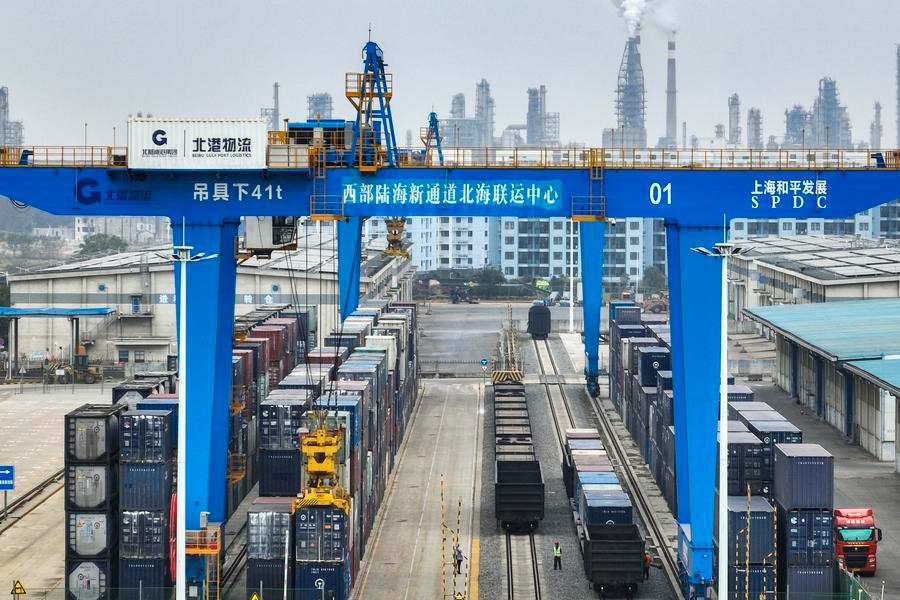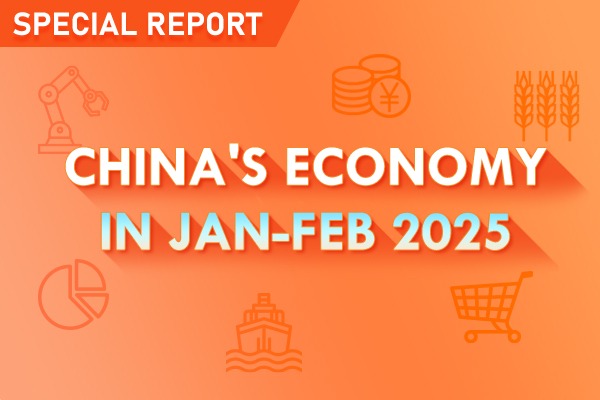Policies to support smaller enterprises
Private firms accounted for 92.3% of total business entities in 2023


China will implement a batch of policies, including those addressing financing and credit, to support small and micro-sized enterprises, platform firms and unicorns, so as to help them expand business and unleash vitality, it was announced on Monday at a conference by the State Council, the nation's Cabinet.
Buoyed by such signals of support for the private sector, share prices rose in China on Monday. The CSI 300, an index of large companies traded in Shanghai and Shenzhen, closed 1.9 percent higher. The ChiNext Index, which tracks China's Nasdaq-style board of growing and emerging enterprises, gained 2.6 percent.
Luo Wen, head of the State Administration for Market Regulation, the country's top market regulator, said that the country will work to introduce innovative quality financing and credit enhancement policies to ease financing challenges for SMSEs.
Under such policies, financial institutions will factor in a company's quality management and brand reputation when issuing loans. Together with equity, funds and bond-based financing tools, the country aims to generate a credit enhancement and financing quota of 300 billion yuan ($42 billion) each year, Luo said.
Luo emphasized that the SAMR will roll out a guideline to guide platform operators to help merchants on the platform enhance brand awareness, increase market transactions and harness traffic.
It will help businesses, especially new entrants, agricultural firms and some unique companies on the platform, to enhance their ability to utilize online traffic more efficiently and tap into larger audiences, he added.
Beyond SMSE support, Wang Jiangping, vice-minister of the Ministry of Industry and Information Technology, said the ministry will collaborate with the China Securities Regulatory Commission to launch the third batch of specialized boards for "little giant" companies in regional equity markets.
Little giant companies refer to small and medium-sized enterprises that typically specialize in niche sectors, command high market shares and boast strong innovative capacity. By the end of June this year, China had cultivated 12,000 such enterprises.
The ministry also plans to sign a strategic cooperation agreement with the Beijing Stock Exchange to further streamline financing channels for these firms, Wang said.
At the conference on Monday, Wang said that China is also placing a greater emphasis on developing unicorn companies — startups valued at over $1 billion — in emerging high-tech fields such as 6G and brain-computer interfaces.
He said a nationwide unified system will be established to coordinate the development of unicorn companies between the central government and provincial government levels.
Unicorn companies will be supported in technological innovation, and will be encouraged and guided to address national strategic needs and master unique, proprietary technologies, Wang said, adding that more efforts will be made to increase financial backing for these unicorns, including support for public listings, mergers and acquisitions, to accelerate their growth.
Despite China's growing unicorns, the country still lags behind the United States in terms of the overall number, according to the Hurun Research Institute. Last year, China had 340 unicorns while the US had 700.
Wang Peng, a senior researcher at the Beijing Academy of Social Sciences, said that encouraging SMSEs, platform firms and unicorn companies are part of broader efforts to spur the private sector, which is of great significance to counter the current global economic slowdown.
A report on private sector development by the State Council showed that private companies accounted for 92.3 percent of the country's total number of business entities in 2023, a significant increase from 79.4 percent in 2012.
"The Chinese economy will continue gathering momentum if the private sector, including smaller businesses, remains sound. More importantly, private enterprises stood undoubtedly at the forefront of technological innovations and the digital economy in recent years, especially in fields like new energy, information, communication, biopharmaceuticals and AI," the senior researcher said.




































